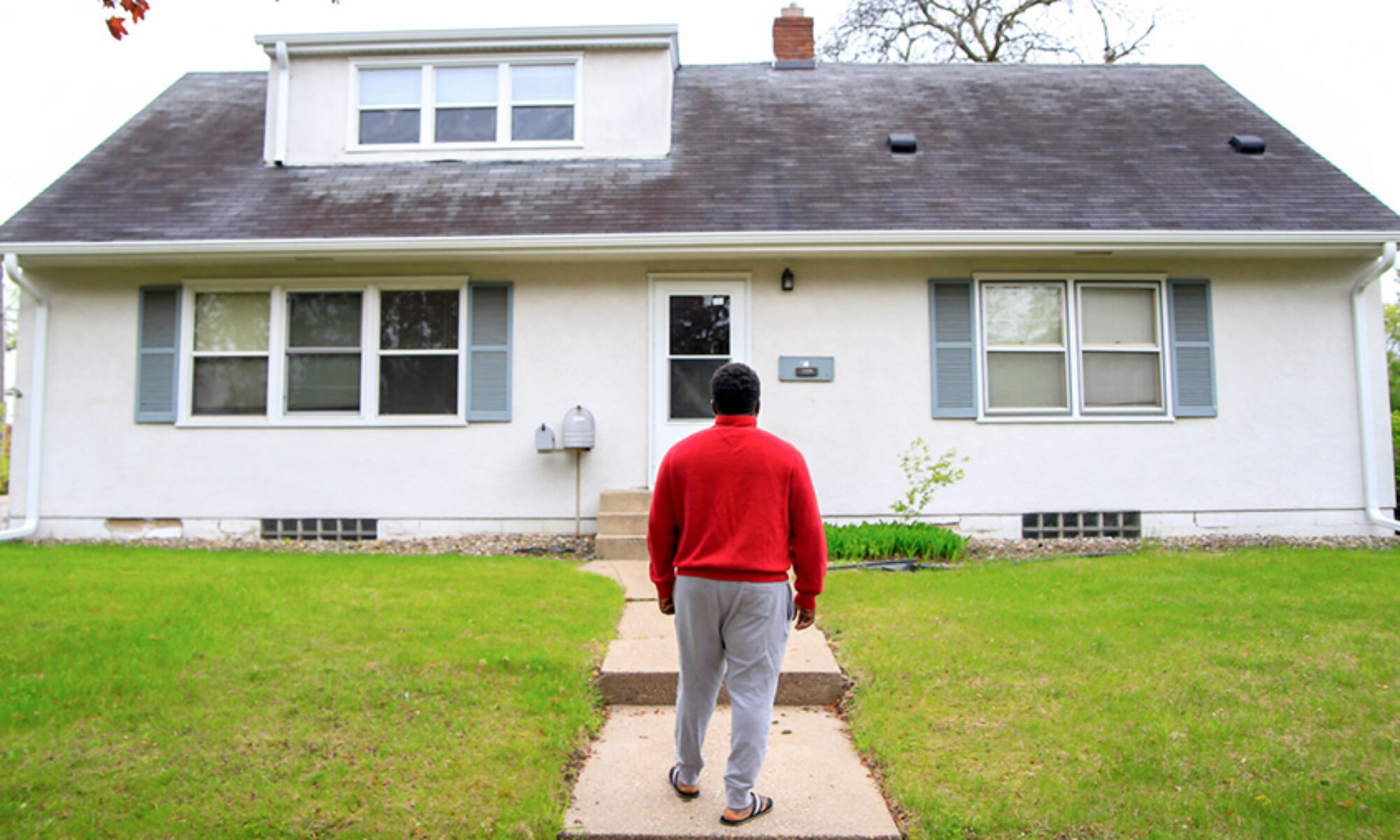
When asked what she hopes for, B.A. says, “First, our hope is always God. Second, I hope God will help me to see my family before I die, so we can be in one place and live life together.”
A Foundation of Faith
Faith has been an integral part of B.A.’s life and family history. She attended church with her family from the time she was a little girl, then raised her own children in the Christian faith. “I believe that Jesus is the truth, the way, and the life,” she says. “My kids are now involved in church back in my home country, too; some are singing, and some are preaching.”
Several years ago, however, political strife violently disrupted B.A.’s life. Close family members spoke out for democracy and political change; as a result, they were murdered by the government. B.A. herself faced imprisonment and torture. “I ran out of that country to save my life, because they wanted to kill me, too,” she recalls.
B.A. sought asylum in the U.S. – a painful journey because she had to leave her children behind. Still, local churches have continued to provide crucial support and encouragement both to her, in the US, and to her children back in her home country. “God is with me and my children in any condition,” she says.
“People who knew my history helped to hide my kids when I fled,” she says. “More recently, when my daughter became sick, her church community helped send her to the hospital to get surgery.”

Faith and Hope in Community
When B.A. arrived in Minnesota, she also wanted to get connected to a local church, so she started looking for information on congregations from her ethnic group. She heard about a pastor in Minneapolis that came from the same region of her country and started to attend his church. She continues to be involved even after moving to Jonathan House in St. Paul.
A life-giving faith or worldview plays an important part in recovering from forced displacement, and faith communities often provide important spiritual and relational support to individuals who are seeking asylum. As B.A. states, “Thanks be to God, my faith has helped me everywhere to live in hope.”
Because of the important relationship between faith and hope, IAFR seeks to support Jonathan House residents, as they desire, in their spiritual growth and help connect them to their local religious communities.
“Jonathan House encourages me in my faith,” B.A. says. “You enter with me into my problems to pray with me. You got me connected to my church and talked with my pastor. This is what I appreciate.”
Sheltering Hope
The pandemic temporarily closed the doors of many places of worship, including B.A.’s congregation. Headaches resulting from injuries she suffered back home have also made it challenging for her to attend church in person. “The pastor calls me and prays with me. He invites me to attend when I can; he’s an excellent pastor.” IAFR staff helped B.A. access her church’s worship online so she can still participate in the community.

As she waits to be reunited with her local church family in person, and eventually with her own family, B.A. expresses gratitude for the community at Jonathan House. “It is a very nice place for asylum seekers,” she says, “You accept people as family.” The safe, stable shelter of Jonathan House is one more way that local churches invest in the resilience and faith-filled hope of refugee neighbors.
“My life is because of God, by his protection and care through all the difficulties,” B.A. affirms. “God is the One who kept us safe; he is the One who did it. We know how we are weak and fallen, but God keeps us safe and saved us, so we praise him.”
“When God will open the door of his house, we will go and worship.”

